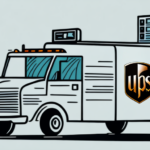Understanding the UPS Chargeback 3 Day Select Commercial
The world of commercial shipping is intricate, with numerous charges and fees that businesses must navigate. One such charge is the UPS Chargeback 3 Day Select Commercial. This article provides an in-depth analysis of what this charge entails, how it operates, the businesses it affects, the reasons behind it, strategies to avoid it, its consequences, how to dispute it, and best practices for managing it effectively.
What is a UPS Chargeback?
A UPS Chargeback is a fee imposed on shippers when the declared weight or dimensions of a package do not match its actual measurements. This discrepancy can arise from incorrect weighing or measuring, or from underestimating the package size or weight. When such inconsistencies occur, UPS charges the shipper an additional fee to cover the difference caused by the inaccurate declaration.
Accurate measurement and weighing of packages are crucial to avoid UPS Chargebacks. Additionally, improper packaging or labeling can lead to delays and extra handling costs, further increasing the risk of incurring chargebacks.
For businesses shipping large volumes, these chargebacks can accumulate significantly. To mitigate these costs, many shippers employ automated systems for measuring and weighing, or partner with third-party logistics providers (3PLs) who specialize in optimizing shipping processes and reducing associated expenses.
What is 3 Day Select Commercial?
3 Day Select Commercial is a UPS shipping service that guarantees delivery within three business days. This option is favored by businesses needing expedited shipping at a more affordable rate compared to overnight services. However, failure to meet the delivery window can result in a UPS Chargeback.
It's important to note that 3 Day Select Commercial is not available for all destinations. Remote or rural areas may have extended delivery times, and packages are not delivered on weekends or holidays, necessitating careful planning.
Another advantage of this service is the included declared value coverage of up to $100 per package. This coverage ensures that if a package is lost or damaged during transit, UPS will reimburse the shipper up to $100. Additional coverage can be purchased if higher value protection is needed.
How Does the UPS Chargeback 3 Day Select Commercial Work?
If a package shipped via 3 Day Select Commercial does not arrive within the promised three business days, UPS may issue a chargeback. The shipper is then billed the difference between the cost of the 3 Day Select Commercial service and the cost of the shipping method that would have been used based on the actual weight and dimensions of the package.
This means that accurate declaration of package weight and dimensions is essential to avoid unexpected additional costs.
Who is Affected by UPS Chargeback 3 Day Select Commercial?
Any business utilizing UPS as their shipping carrier and choosing 3 Day Select Commercial as their shipping method may be subject to UPS Chargebacks. This charge is applicable regardless of the business size or type but can be particularly detrimental to small businesses operating with tight budgets.
Reasons for UPS Chargeback 3 Day Select Commercial
The primary cause of a UPS Chargeback is inaccurate measurement or weighing of packages. Human error in measuring or weighing, or incorrect estimations of package size or weight, can lead to discrepancies. Additionally, UPS may re-measure and re-weigh packages during transit. If the actual measurements exceed the declared ones, a chargeback is triggered.
How to Avoid UPS Chargeback 3 Day Select Commercial
To prevent UPS Chargebacks, shippers must ensure accurate measurement and weighing of packages. This can be achieved by:
- Using reliable scales and measuring tapes.
- Implementing automated systems for measuring and weighing.
- Providing UPS with precise information regarding package dimensions and weight.
- Utilizing the UPS shipping calculator to obtain accurate shipping quotes and select appropriate shipping methods.
Partnering with third-party logistics providers can also help optimize shipping processes and reduce the likelihood of chargebacks.
Consequences of UPS Chargeback 3 Day Select Commercial
The repercussions of UPS Chargebacks can be substantial, especially for small businesses. These additional fees can escalate shipping costs, adversely affecting a company's profitability. Persistent and significant chargebacks may lead UPS to reconsider its business relationship, potentially steering business towards competitors.
How to Dispute a UPS Chargeback 3 Day Select Commercial
If a shipper believes that a UPS Chargeback is incorrect, they can dispute it by providing evidence of accurate weight and dimensions. This evidence may include:
- Photographs of the package.
- Invoices or receipts from the scale or measuring device used.
- Relevant shipping documents.
It is crucial to submit all necessary evidence within the deadline specified by UPS to successfully dispute the chargeback.
Best Practices for Managing UPS Chargeback 3 Day Select Commercial
To effectively manage and minimize UPS Chargebacks, businesses should adopt the following best practices:
- Accurately and consistently measure and weigh all packages.
- Choose appropriate shipping methods based on package size and weight.
- Double-check all estimates and calculations before finalizing shipping details.Maintain detailed records of all shipping-related activities.
- Consider working with a UPS-approved third-party logistics provider to handle shipping and logistics, reducing the risk of inaccuracies and chargebacks.
Understanding the Difference Between a Chargeback and a Dispute
A chargeback occurs when UPS imposes an additional fee due to discrepancies in package weight or dimensions. In contrast, a dispute is initiated by the shipper when they challenge the accuracy of the chargeback. Resolving a dispute involves presenting evidence to prove that the chargeback was unwarranted, whereas a chargeback is an additional cost levied by UPS.
Navigating the Complexities of Shipping Charges with UPS
Managing shipping charges with UPS requires a thorough understanding of the various fees and policies. Key strategies include:
- Using the UPS online shipping calculator to accurately estimate shipping costs.
- Providing precise dimensions and weights for packages.
- Exploring different shipping options and their associated costs.
- Collaborating with a UPS-approved third-party logistics provider to navigate complex shipping scenarios effectively.
The Impact of Shipping Delays on UPS Chargebacks
Shipping delays can significantly influence UPS Chargebacks. If a package does not arrive within the guaranteed timeframe, the shipper may incur a chargeback. However, if delays are caused by UPS, shippers might have grounds to dispute the chargeback or request a refund.
What to Expect When Dealing with a Chargeback from UPS
When dealing with a chargeback from UPS, expect an additional fee based on the discrepancy in weight and dimensions. To prevent such scenarios, ensure that all provided information is accurate and that measurements and weights are verified before finalizing shipping details. If a chargeback is issued unjustly, promptly initiate a dispute with the necessary supporting evidence.
Tips for Managing Shipping Costs and Avoiding Chargebacks with UPS
Effective management of shipping costs and avoidance of chargebacks involves:
- Partnering with a UPS-approved third-party logistics provider.
- Ensuring precise measurements and weights are communicated to UPS.
- Selecting appropriate shipping methods based on package specifics.
- Preventing shipping delays.
- Regularly reviewing and optimizing shipping-related costs and procedures.
Optimizing Your Shipping Strategy to Minimize Chargebacks with UPS
To optimize your shipping strategy and reduce the risk of UPS Chargebacks, consider the following:
- Stay updated with UPS's latest pricing and shipping policies.
- Ensure consistent and accurate provision of package information.
- Choose suitable shipping methods and carriers based on current needs.
- Maintain meticulous records of all shipping transactions and data.
- Leverage technology and work with third-party logistics providers to streamline shipping operations.
The Impact of COVID-19 on Shipping and Chargebacks with UPS
The COVID-19 pandemic has profoundly affected the shipping industry, including UPS. The surge in e-commerce has led to increased shipping volumes, resulting in longer delivery times and higher shipping costs. In response, UPS has adjusted its pricing and shipping policies to accommodate heightened demand. These changes have also influenced chargebacks, with shippers potentially facing additional costs due to delays and extended shipping times.
A Comprehensive Guide to Navigating the World of Commercial Shipping with UPS
This guide offers a comprehensive overview of navigating commercial shipping with UPS, focusing on the UPS Chargeback 3 Day Select Commercial. Understanding the various charges, fees, and policies associated with UPS shipping helps businesses minimize costs and maintain efficient shipping operations. By adopting best practices, staying informed about UPS policies, and collaborating with trusted third-party logistics providers, businesses can effectively manage the complexities of commercial shipping with UPS.
Understanding the Role of Technology in Managing and Preventing Chargebacks with UPS
Technology plays a critical role in managing and preventing UPS Chargebacks. Tools such as automated weight and dimension measurement devices significantly reduce the risk of inaccuracies. Additionally, adopting advanced shipping software helps accurately calculate shipping costs and select appropriate shipping methods. Furthermore, software that tracks and manages shipping-related data enables businesses to identify improvement areas and lower the likelihood of chargebacks.
Preparing for the Future: Anticipated Changes in Commercial Shipping and Chargebacks
The landscape of commercial shipping is continually evolving, with expected changes in policies, fees, and shipping methods driven by the growth of e-commerce and technological advancements. Future trends may include increased automation in package measurement, new shipping solutions to handle higher demand, and enhanced processes for managing chargebacks with an emphasis on accuracy and efficient dispute resolution. Staying informed about these changes and implementing best practices will equip businesses to thrive in the dynamic world of commercial shipping with UPS.






















